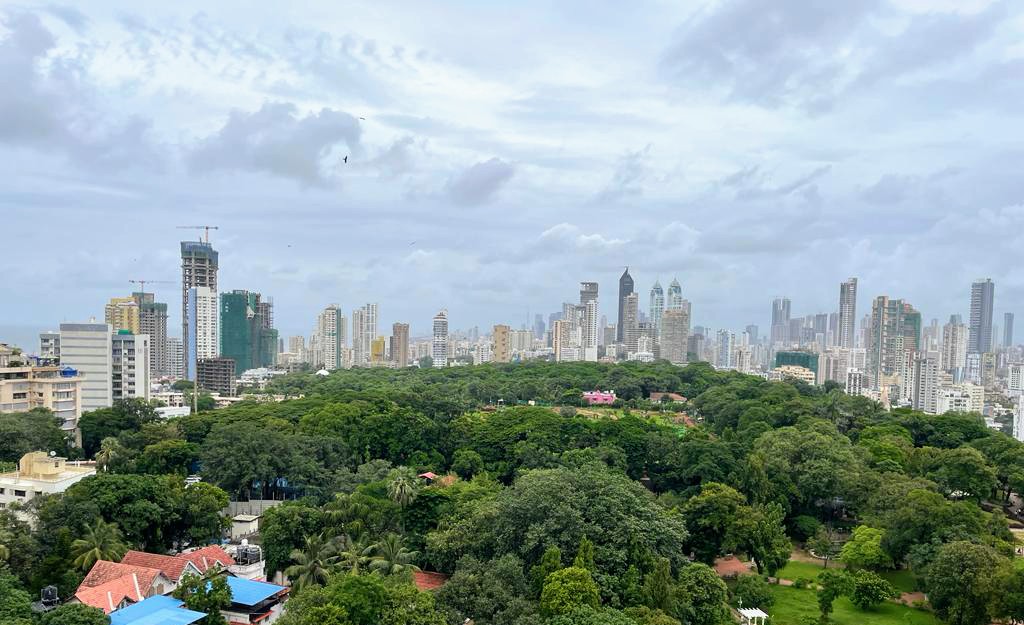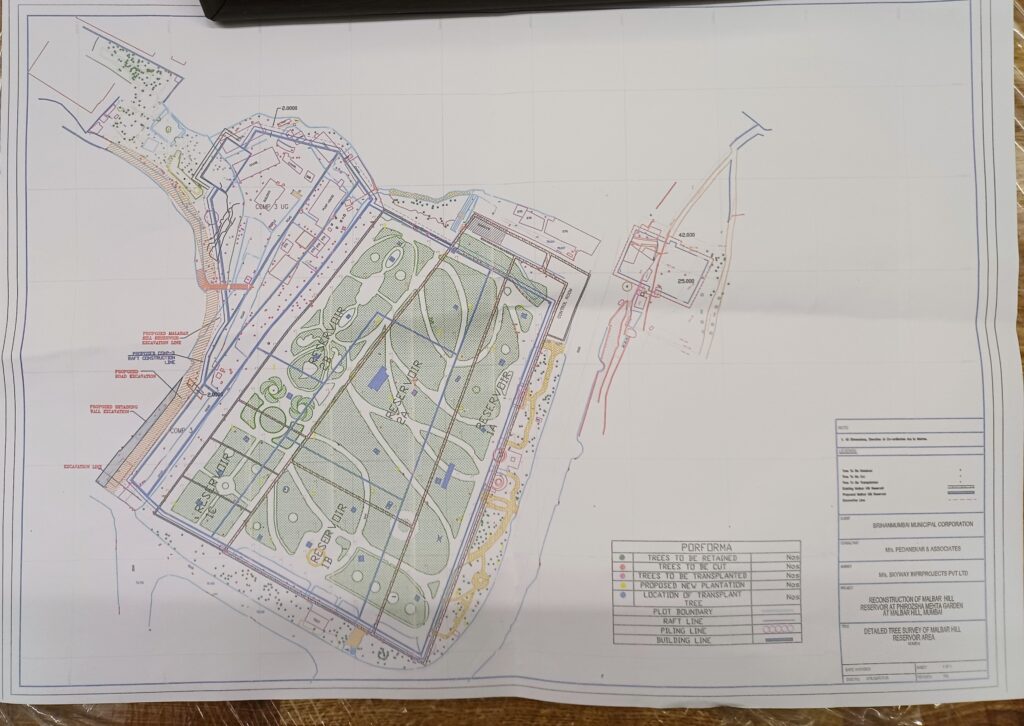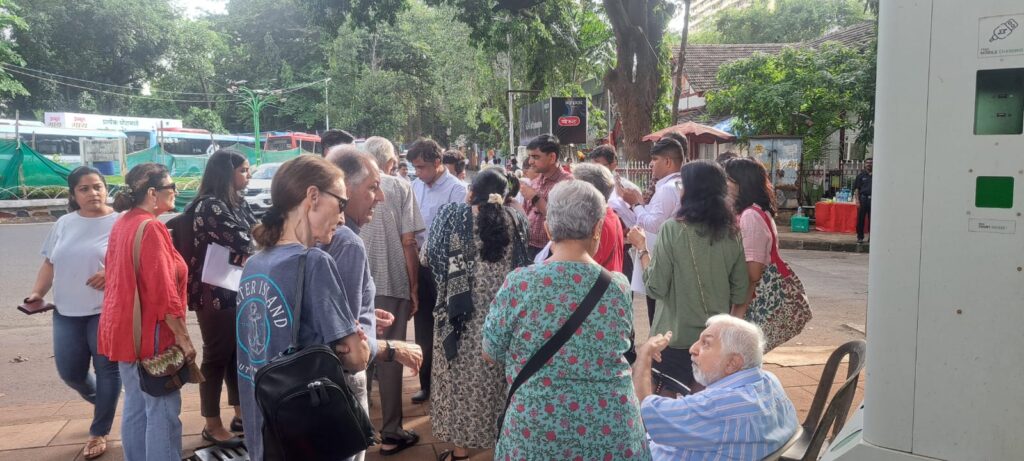Rise Up, Stand Up! For the Trees of Malabar Hill
Nearly 400 trees to be cut for reconstruction of the Malabar Hill water reservoir>Built in 1881, the Pherozeshah Mehta (or Hanging) Garden, is one of the oldest and most prestigious of public spaces in Mumbai.

The garden and its adjoining wooded areas, play host to numerous species of the plant kingdom and wildlife. In an overpopulated city, that’s rapidly losing its green cover to poorly-planned development— this expanse of verdure, is our environmental heritage. A legacy, that must be preserved for our future generations.
Earlier this month, visitors to the Garden saw numbered notices stuck on almost all of its trees and the ones in its neighborhood. Upon enquiring with the BMC, they were informed that 389 trees of the Garden and nearby areas (including, the beautifully-created Shantivan Garden),would be cut. Reason being, to carry out the repair and reconstruction work of the Water Reservoir located under the Hanging Garden. To avoid environmentalists’ ire over this news, the BMC announced that while 189 trees will be axed, 200, would be transplanted. However, as has been proved, repeatedly, in the ongoing development projects in Mumbai, transplantation is an exercise in futility. It is just not a feasible solution.
According to the BMC, since the population of South Mumbai has increased exponentially, in recent years, due to redevelopment etc.—so has the demand for more water. Therefore, to augment water supply, the existing water storage capacity has to be boosted. But the BMC in its oft-repeated ill-preparedness of urban planning, has put the cart before the horse. Why were permissions for the redevelopment/construction of high-rises granted, prior to strengthening the essential civic services infrastructure?

As much as we understand the value of water, we should also be aware, of the importance of trees. It is, indeed, ironical, that for one element of nature, we are willing to destroy the other. Trees, are integral to the functionality of the Earth’s ecosystem. Trees make rain. Water scarcity is a very real phenomenon and one, that shouldn’t be taken lightly. The BMC stated, new trees will be planted to replace the felled ones. But new plantations can never compensate forthe ecological benefits of old trees. The trees of the Hanging Garden and its adjoining woods, have built networks underground, which have nurtured and sustained South Mumbai, for over a century. These ancient trees with their deep roots, also hold water, to counter heavy rainfall. Not only would destroying them, in times of increased climate change events, be detrimental to our lives, but it would also, be an environmental crime.
The BMC’s plan for cutting these trees has, understandably, met with stiff resistance from local residents and citizens of Mumbai. There is a feeling of them being overlooked by the BMC, in the planning of the project. On 14 September, at a hearing called by the Tree Authority, residents presented their objections to the project. Upon their request, on 15 September, the BMC officers conducted a site visit and walked them through the project area. At a subsequent meeting on 18 September, with Mangal Prabhat Lodha (Guardian Minister and local MLA) and the BMC, the residents were asked by Lodha to seek expert technical advice and propose an alternate plan. The next meeting will be held on Tuesday, 26 September at the BMC HQ.
It is imperative that every option discussed/suggested by citizens, is carefully considered– before initiating the felling of even one precious tree. As for us residents, we must ensure, the protection of our beloved woods and abundant bio diversity that thrives in them.
An urban forest is under threat. Please help protect it. A citizens group on WhatsApp, has been formed to share information, discuss views and strategy, and plan the way forward with the BMC. Please write in to us, if you wish to join it.
By Pervin Sanghvi (Pervin Sanghvi, is an environmental campaigner, a C4D consultant, and resident of Malabar Hill)






